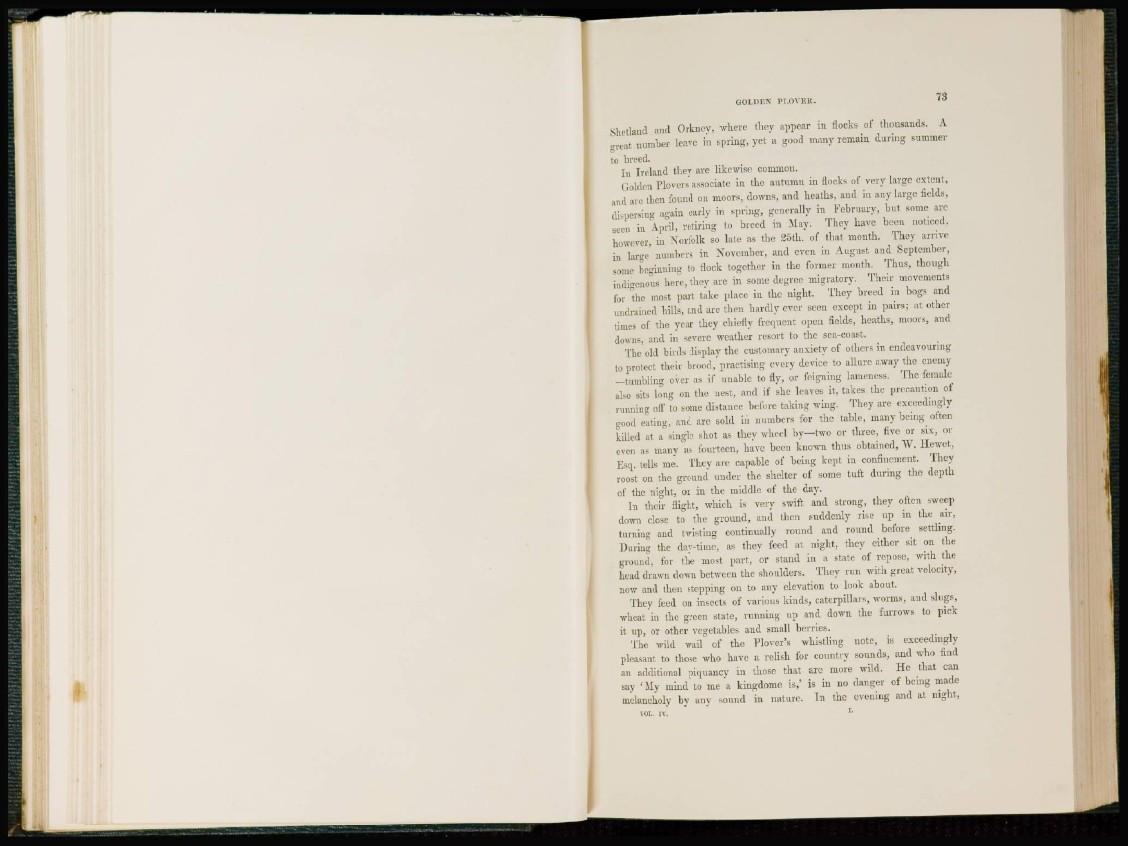
GOLUEX PLOVEK. IS
Shetland and Orkney, where they appear in flocks of thousands. A
great number leave in spring, yet a good many remain during summer
to breed.
In Ireland they are likewise common.
Golden Plovers associate in the autumn in flocks of verv large extent,
and are then found on moors, downs, and heaths, and in any large fields,
dispersing again early in spring, generally in February, but some are
seen in April, retiring to breed in May. They have been noticed,
however, in Norfolk so late as the 25th. of that month. They arrive
in large numbers in November, and even in August and September,
some beginning to flock together in the former month. Thus, though
indigenous here, they are in some degree migratory. Their movements
for the most part take place in the night. They breed in bogs and
undrained hills, and are then hardly ever seen except in pairs; at other
times of the year they chiefly frequent open fields, heaths, moors, and
downs, and in severe weather resort to the sea-coast.
The old birds display the customary anxiety of others in endeavouring
to protect their brood, practising every device to allure away the enemy
—tumbling over as if unable to fly, or feigning lameness. The female
also sits long on the nest, and if she leaves it, takes the precaution of
running off to some distance before taking wing. They arc exceedingly
good eating, and are sold in numbers for the table, many being often
killed at a single shot as they wheel by—two or three, five or six, or
even as many as fourteen, have been known thus obtained, W. Hewet,
Esq. tells me. They are capable of being kept in confinement. They
roost on the ground under the shelter of some tuft during the depth
of the night, or in the middle of the day.
In their flight, which is very swift and strong, they often sweep
down close to the ground, and then suddenly rise up in the air,
turning and twisting continually round and round before settling.
During the day-time, as they feed at night, they either sit on the
ground, for the most part, or stand in a state of repose, with the
head drawn down between the shoulders. They run with great velocity,
now and then stepping on to any elevation to look about.
They feed on insects of various kinds, caterpillars, worms, and slugs,
wheat in the green state, running up and down the furrows to pick
it up, or other vegetables and small berries.
The wild wail of the Plover's whistling note, is exceedingly
pleasant to those who have a relish for country sounds, and who find
an additional piquancy in those that arc more wild. He that can
say ' My mind to me a kingdome is,' is in no danger of being made
melancholy by any sound in nature. In the evening and at night,